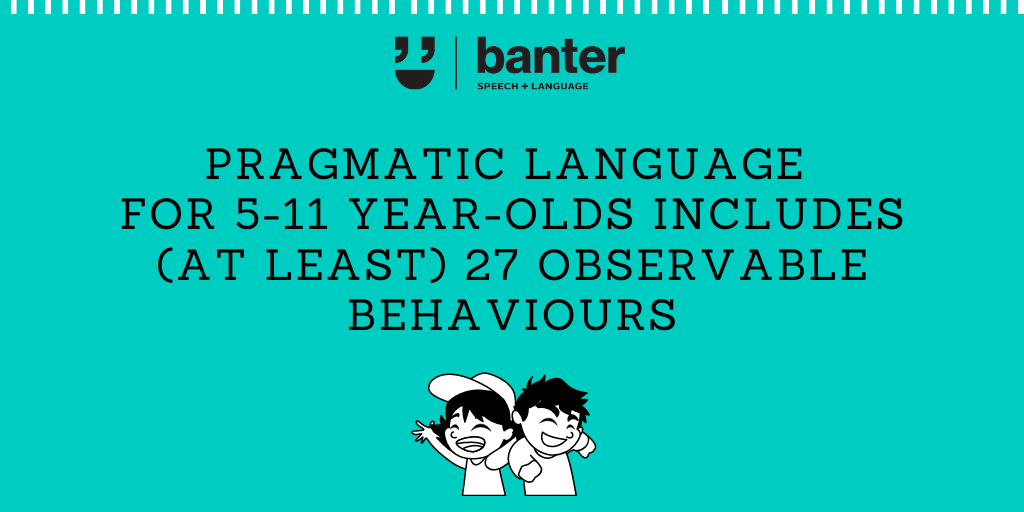Pragmatic language for 5-11 year-olds includes (at least) 27 observable behaviours
‘Pragmatic language’ is a complex and sometimes vaguely defined concept.
To get a grip on what it means in practice, it helps to break it down into things we can observe and measure in different places.
In our second evidence-based infographic, our Speech Pathologist, Cherie Finocchiaro, reviewed a great research paper highlighting 27 behaviours to look for when assessing children with social use of language challenges:

Related infographics:
- What is ‘pragmatic language’? The social use of language
- Key behaviours to look for in the pragmatic (social) language development of children aged 0-5 years
- Helping Children with Pragmatic (Social) Language Challenges. Some Evidence-based Themes
- 5 tips for using video self-modelling to improve pragmatic language skills
- Play-based, peer-mediated pragmatic language intervention for school-aged children
- Planning a play date for your child during the school holidays?
- Project-based Pragmatic Language Interventions: The SENSE Theatre

Hi there, I’m David Kinnane.
Principal Speech Pathologist, Banter Speech & Language
Our talented team of certified practising speech pathologists provide unhurried, personalised and evidence-based speech pathology care to children and adults in the Inner West of Sydney and beyond, both in our clinic and via telehealth.








